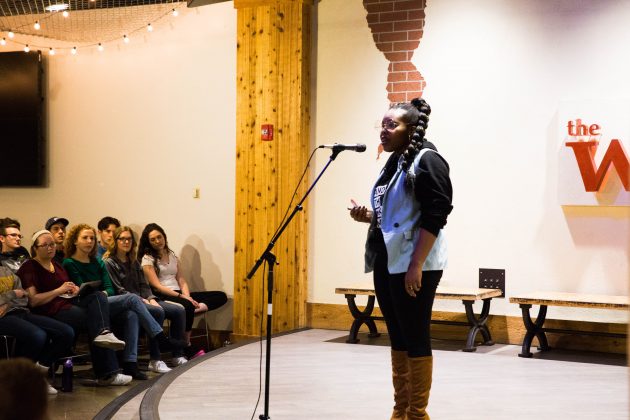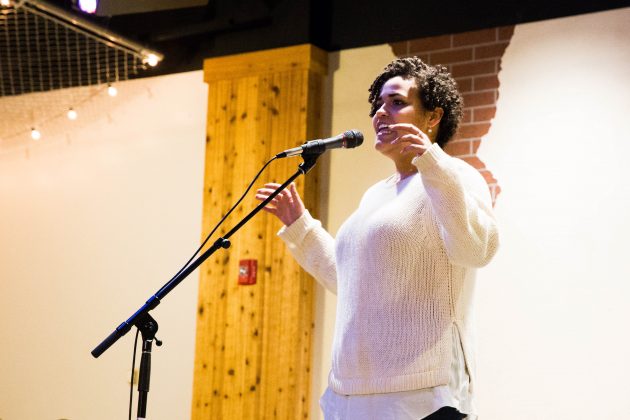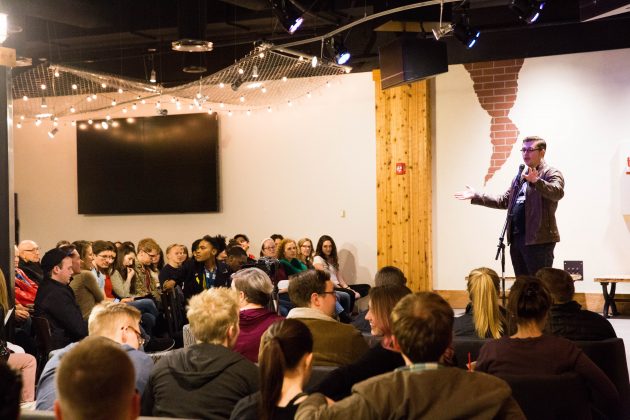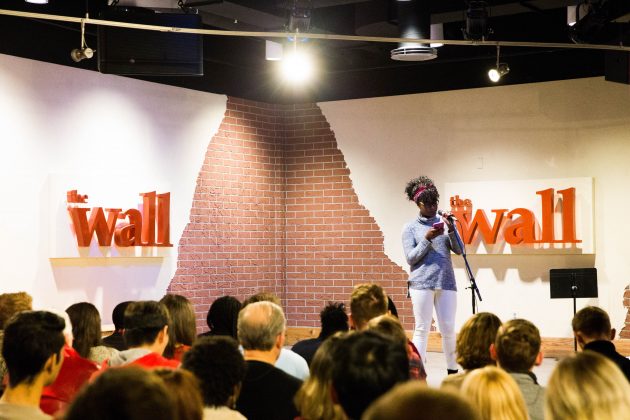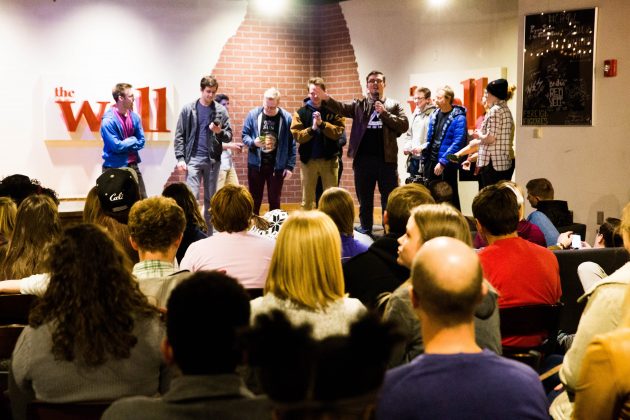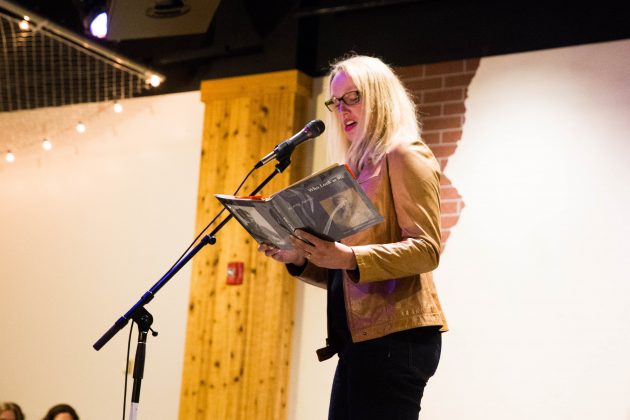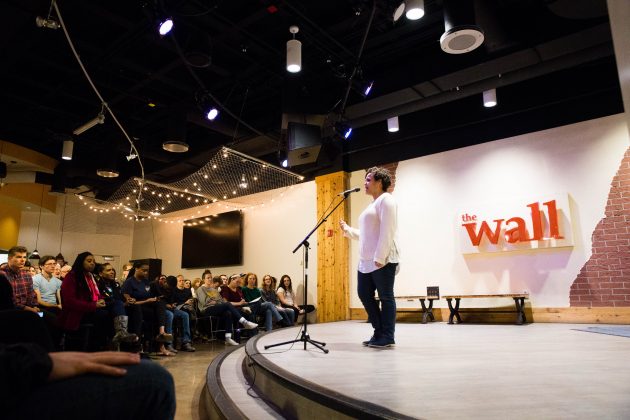BYU students gathered at the Wall Feb. 10 to perform their personal poetry and recite work from famous black poets in honor of Black History Month.
The Wall was lined with chairs and eager listeners for the monthly Saturday Night Slam Series poetry slam put on by the English Society and volunteers. In honor of Black History Month, the Slam Series teamed up with the Black Student Union to put on a Black History slam.
Maddie Taylor, one of the Saturday Night Slam Series directors said that at a school where students have similar cultural backgrounds and life experiences, it’s important to have different stories both heard and told.
“This is a place where you can talk about things and be taken seriously where you aren’t necessarily otherwise,” Taylor said. “It’s also a place where you can take serious things and make fun of them when you aren’t really allowed to otherwise.”
Each month, the event starts at 7 p.m. at the Wall located in the WSC. This month, 20 poets emailed ahead of time to reserve a spot of the set list. Cameron Mayo, emcee of the night and one of the event directors and founders, welcomed everyone to the slam and explained what to expect for first-time audience members. Mayo also asked for five volunteer judges to help choose the night’s winners.
Mayo said the judges are not given a rubric, just a pen and paper and the categories. He said poems that win do not always fall into the traditional sense of the categories. This was evident this month when a poem about loving and hating BYU won the romance category.
Slam contest categories are romance, comedy, Darkhorse (wildcard), best new poet and best overall. Because this slam was open for recitation to celebrate Black History Poetry, the best new poet category was replaced with best recitation for the night. A poetry recitation is a performer reciting another person’s poem on stage, instead of a self-written piece. This was encouraged for Black History month so Black History poets and themes could best be represented.
“Inherently slam poetry, as a genre, has been a place for political and social discourse,” Mayo said. “We’ve had lots of people come in and share their own social and political ideals and they are usually met with respect.”
Poets’ Black History ideals were met with cheering and high audience engagement on Saturday night. Many cheers and supportive phrases were yelled throughout the event.
When about 60 percent of the 20-person set list had performed, Mayo got up to hold a “haiku-off.” Sixteen random audience members volunteered — or their neighbors — to come on stage and read a self-written haiku.
The haiku readers were split into groups of four and the audience voted for their favorite haiku from each group with applause. The winners from each group moved on to the final round. They were given a word from a random-word generator and had the remainder of the slam to write a haiku involving that random word.
The rest of the set list then performed. If time allows, add-in poets can perform after the official set list has finished. The judges then left to decide the winners for each category while the finalists for the ‘haiku-off’ returned to the stage to perform their 17 syllable verse. The overall winner was again selected by audience cheering.
The judges returned and the winners of each category were announced and given a small prize. The prizes are meant to follow puns regarding the category. For example, the romance category always wins a framed copy of the BYU Honor Code.
Overall winner for the night Caity Leavitt said she started performing poetry to express what she believes and she found that other people felt the same way.
“There is no more supportive environment to be vulnerable,” Leavitt said.
Mayo said the average attendance is 330 audience members. He added the slam has a couple consistent performers, but the event directors try to motivate new poets to perform.
Taylor said repeat performers are fun because they know how to “have fun with it” and perform. A wide variety of students generally perform, according to Taylor.
“That’s something I’m really excited about,” Taylor said. “It started out as an English major thing because the English Society was associated, but we have all kinds of majors from all over the board.”
Taylor then went on to talk about why slam poetry appeals to such a wide audience.
“Because slam poetry has certain allowances you can’t do on paper, and it has certain ways of expressing emotion in ways that aren’t tied directly to literature,” Taylor said. “Just having your voice heard in general is something that appeals to more than just English majors.”
Information about monthly Saturday Night Slams can be found on the groups Facebook Page. They also encourage all to follow their Twitter for live event updates.

